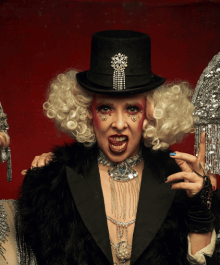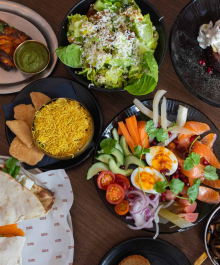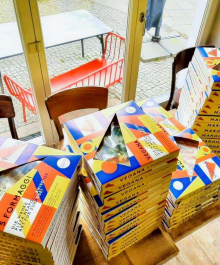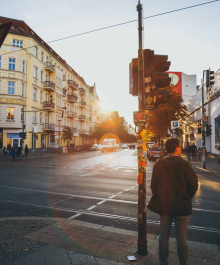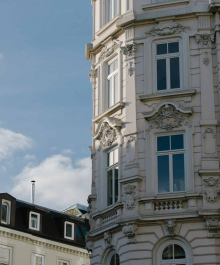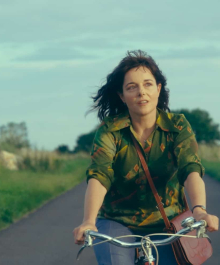
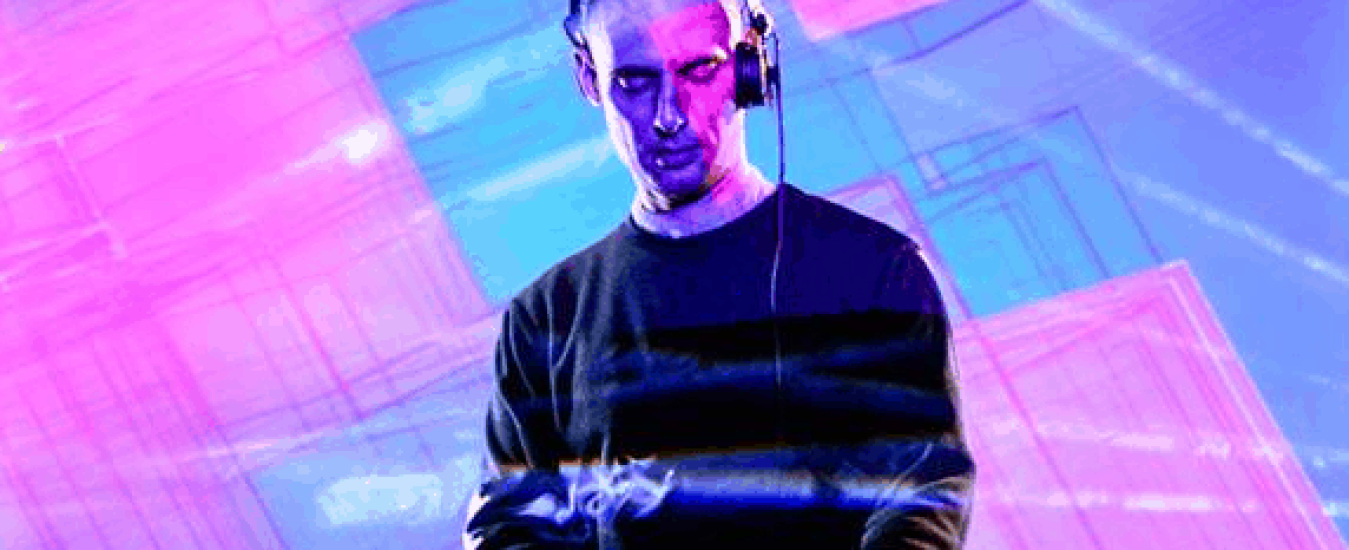
Although only in his mid 30s, Charlie Smooth is already a 15 year veteran of the Berlin nightlife scene.
Be it as a DJ, club night promoter, music maker or simple club-goer, he has seen it all in this town over the last decade and a half.
Now, with the launch of his new project “Smooth Operators” in conjunction with Berlin Bass Collective, we felt it was time to sit down and chat with a guy whose infectious appetite for music always spills over onto the dancefloor.
Hey Charlie, thanks for sitting down with us today. Can you tell me a little bit about where you come from and why you came to Berlin?
I was born in Bulgaria, and during my adolescence I became obsessed with hard pumping techno as a sort of rebellion, later discovering Tresor records, and their super abstract and sophisticated stuff. I was really hooked on this music, it blew my mind.
The cultural limitations of the so called communist regime have fallen away and there were whole new cultural landscapes to discover for the first time. At 16 I told my parents I wanted to study in Berlin, but my plan was always to become a DJ. Back then, Bulgaria wasn’t part of the European Union, so getting a student visa was the only way to move here. I was 18, and fresh out of high school in May 2002, and by October I was in Berlin.
When I arrived here, in the first 2-3 years I was just fighting for survival with all kinds of jobs. Bars, cafes, after-hour clubs. At the same time I was constantly buying records, putting money from badly paid student jobs jobs into equipment and building a record collection, going to parties constantly and getting to know the people here.
How would you describe Berlin in 2002?
Oh, it was completely different place and so were the parts of the city that were considered hot or cool. At the start, Mitte was the place to be, Friedrichshain was always solid, P-berg was also amazing with a lot of clubs and record stores, all the cool young people wanted to live there. Neukoelln was a dark place like Mordor from Lord of the Rings, where nobody wanted to go. If you are sitting out on a date and said “Hey, do you want to go to my place?”, if asked where you lived and you reply Neukoelln, the other person would hastily get up, grab their stuff, and get out of there as fast as possible.
When did that start to change for you?
There were a couple of paradigm shifts. One was 2006 with the World Cup, where a lot of tourists came and saw that Germany is not just sausages, beer, and nazis. Instead they saw that there is also a a very exciting and vibrant club culture with so much freedom, more than any other place in the world, I guess another big factor of course were the cheap flights allowing people coming from London or wherever, to have easy access. Facebook and Resident Advisor as well, now everyone knew where to go for the party. Around 2010, the number of people moving here also greatly increased.
The club landscape changed a lot. In the past the club landscape was either predominantly techno or what was referred to as the Berlin sound, labels like Poker Flat, Perlon, Highgrade also Playhouse, although they are not from Berlin. It became so popular that everyone was doing it, so it became a repetition of a repetition of a repetition. In 2006 there was creative crisis, where everything was a copy of a copy, not so many fresh an exciting releases, everyone was riding the same old train.
That lasted ’til 2008 when a lot more people started releasing that old-school, rough, analogue kind of house that you could hear from Kerri Chandler, or Soulphiction, Moodymann, Theo Parrish. Stuff that had a rough old groovy and funky feel, not so minimalistic. Nu Disco as a genre also emerged and it offered something different in contrast to the dry hypnotic minimalist sound that was popular at the time. It paved the way for the big “classic disco” comeback, that happened a few years later. Now you had crazy piano solos or cheesy but soulful vocals.
This was the start of a new direction, a new trend opening up. Although a lot of people were liking and buying that kind of music, no one was really daring to promote that kind of sound in the big clubs, and it was rarely played in DJ sets. Also at that time 2008/09 my friends and I realised that musical gap and saw a niche, which is how the Get Deep party started. As a sort of antithesis to the majority of the other parties, which went outside of the established musical path and took risks. We were one of the first ones to promote that sound around that time, and by 2013 pretty much everyone was jumping on that train. It became the sound of the day.
Tell me a bit about the first few years of the Get Deep party series at About Blank. That was from 2009 until until recently at the end of 2016 right?
The first years were amazing, exciting, new. Basically we were like kids in a candy store, because we realised we had the opportunity to fulfill our youthful dreams, to book and then play alongside as all those legendary people that have significantly impacted on the culture that we respect so much.
The first party we only booked friends. It went so well, that for the second one we could afford some bigger names like Blake Baxter and Marshall Jefferson,Greg Wilson, also Soulphiction, Motor City Drum Ensemble, and Hunee. Hunee was playing for us early on when he was not nearly as famous as now. Other guys like San Soda or Max Graef also played for us and then went on to become very successful, which for me was a confirmation of our musical philosophy.
So all good things come to an end, what was the story with Get Deep? Why did you guys choose to wrap it up?
Well there were a lot of reasons. Being a promoter is a hard job and the Berlin competition is crazy. The most of the parties rarely last more than 4 years and we did 7. Also, another major reason was that my partners needed to devote more time to their families and careers, and I was maybe the only one that was still fascinated by the music and wanted to continue working with it. So, I had to wrap up this phase and reinvent myself, and look for new opportunities and creative paths.
What can you tell us about your about new project, Smooth Operators.
I love DJing so much and I will continue to do it for many more years, but there are other sides of the musical field that I would like to discover and learn about. One of them is making records. After the Get Deep parties were over, it opened up a big gap in my life. I was feeling down and I took some time for myself where I was more introverted, just listening to music and reflecting where I come from and where I want to go. I started making music fanatically.
I was making new versions of tracks that I would play in my DJ sets. After some time I had about 50 or so disco edits and I also started making house and techno tracks. More and more people started asking me to send them the tracks, so they could play them, and this is how I launched my Bandcamp page to see if there was any interest in them on a larger scale. Also through my other project, the Disco Train parties in Crack Belmer, I met Matt Kus from Berlin Bass Collective whose friendship was like a gift from the universe and has opened up new horizons for me. He’s now my booker, my label manager, and best mate. Together we just recently started the label Smooth Operators.
What are the principles behind Smooth Operators?
Well, in the words of DJ Harvey, it would be “adult oriented dance music”. Obscure, warm, organic tracks that are off the radar, but have the potential for a dancefloor burner. Rocky, funky, danceable, meaningful and intense stuff that I like to play in my DJ sets. On a philosophical level it’s music for the emancipation of the human kind.
The first release from myself is already out, and receiving a lot of support. It has just made it to the Oye Top 10 Sellers this week. We had the release party in Wilde Renate at the start of September. That venue is somewhere where I feel like I am always very confident and able to play my best sets. The intimacy on that Red Floor allows to establish connection with every person on the dancefloor, and it’s really like we’re creating the atmosphere together, right here and right now. The second release will be from another friend of ours, Marco Esposito and his band organic, funky, smooth, African influenced music. The goal is to create a platform to support our friends and promote the sound we believe in. It’s quite exciting, a new beginning. There is so much to learn and discover.
At this stage you had been frequently DJing around most of the top Berlin clubs for quite some time. What’s it like be behind the decks in a Berlin club so often?
Amazing. It’s such a nice feeling. It’s so different to play at your own parties, becasue when you start organising them you think it’s gonna be all sex, drugs and rock’n’roll, but really it’s a week of excessive bookkeeping.
So now, when I am just booked as a DJ, I have so much more energy, because you don’t have a thousand and one things to take care of, you’re just free. I’m better prepared, more energetic for the party, and often I play better DJ Sets. I love playing in front of the Berlin crowd. They are so educated and challenging, and they can differentiate, they can appreciate when someone is taking risks and playing an awesome set.
There are places like Wilde Renate and About Blank, which are just amazing spots to play, because of the combination of the people, the vibe of the places and the sound system. Places like Griessmuehle and Prince Charles are also fun, and Heidegluhen, where I had the pleasure of playing twice, was also one of the highlights for me this year. Having said this, I have to admit that while I love playing in Berlin so much, after so many years, I vaguely know what its going to be like on a given night, so its also very satisfying to play internationally. This year London was really interesting, The Loft in Groenigen was one of the best parties and another highlight was also Balearic Sunday in Dresden.
How do you discover new music?
The music finds me. Nowadays there are no excuses not to have the information. A lot of my friends are diggers, and fascinated music lovers, I have learned a lot from them. I’m also good friends with the guys from the Record Loft and OYE Records, and I work for HHV. I get a lot of promos too.
Also, I guess part of the game is to get your fingers dirty and look for whatever you can find in all kinds of places. Just everywhere! Over the years I have so many influences from Detroit Techno, Chicago House, Dub, Minimal, all kinds of Disco, Balearic, Progressive Rock or whatever. There are different places to dig for every different genre.Over time it has all merged into my own personal, authentic sound. People who come to listen are often surprised about this combination of tracks, with music from Fela Kuti, Levon Vincent, and Stacy Q all in one set.
You graduated from social sciences at Humboldt University two years ago, and since you have tied music into most aspects of your life, how did your education fit in?
Social sciences was one of the toughest courses at Humboldt, maybe after Medicine and Law. The only way I could finish it, was to write about something that I love, and that’s music.
Four years ago I did a research project on why people are still interested in buying vinyl in the digital age. Basically the result of the interviews are that there are three physical aspects that attract people – the first is the sound, the auditive aspect. Analogue sound is just different. It has been differently mastered, it has more dynamic range and it is more natural, more pleasant for the ears and the body. Then there’s the visual aspect of vinyl, a lot of people buy the record because of the cover art. It’s just really nice to see that big 12 inch picture, especially when you have a couple of thousand different ones. Finally, the haptic feeling that you need to be physically engaged, sort them, arrange, group them. It’s the physical relation you have, to put it on the platter, care for it, don’t scratch it. Compare the different versions you have in your collection.
There are also social aspects of buying vinyl. The belonging to a certain group or culture, the exchange with other fellow enthusiasts. Interactions with fellow diggers in the stores, stuff like that with people who share the same passion, and have a tip for you. The fact that you put more work into collecting and managing this huge pile of vinyl. All that work has an effect on your DJ sets.
So before we go, you’ve been a Berliner for 15 years now. On the rare occasion that you have a time away from the non-stop Berlin dancefloor, what does your ideal weekend in Berlin look like?
Because nightlife is so exhausting, I do really need time for myself away from the noise, distractions and seductions of society. I really like to go to Treptower Park, in the nature looking at the water and the trees. I do some yoga, meditation or sports to keep myself fit, and finally find some time for friends and family, or just do nothing and chill. Boredom is good for creativity.
What are your big hopes and dreams for the next few years?
Well, I am very thankful that the partygoers and promoters support me for so many years. My hopes and dreams are that I will be able to continue to travel the world with a small bag of records and make people happy with it. More than that, with Smooth Operators, we are hoping to establish great platform to publish music that will be exciting and appealing to people for many years. And even more than that, world peace, happiness and enough food for everyone.
You can catch Charlie Smooth at his Disco Train party this Friday at Crack Belmer with Baby G and Jochen Discomayer. For more info on this most excellent Berlin DJ, check out the links below.
https://charliesmooth.bandcamp.com/
https://soundcloud.com/charlie-smooth
https://soundcloud.com/berlinbasscollective/sets/smoop-001-previews
